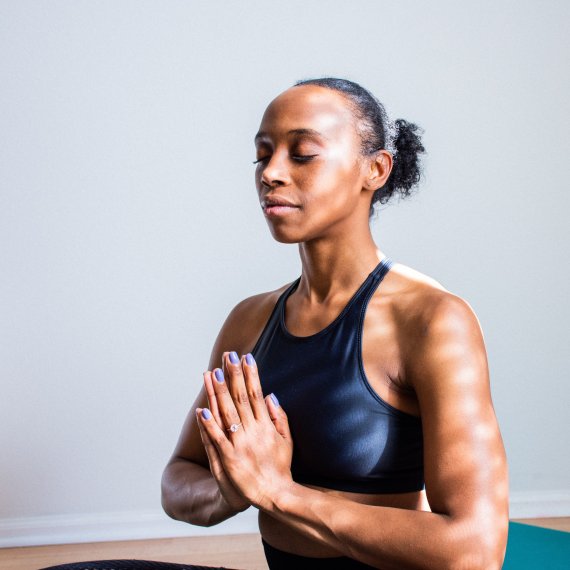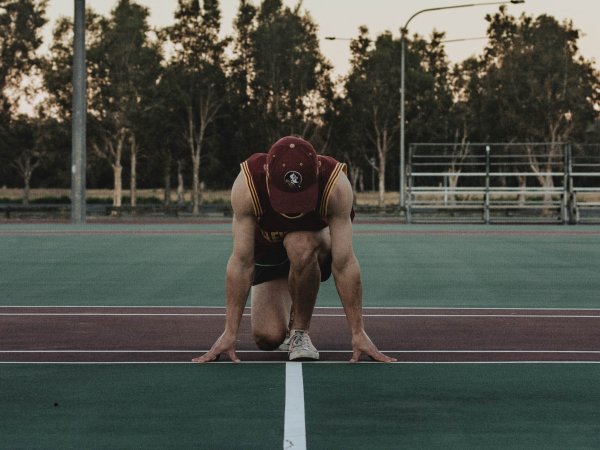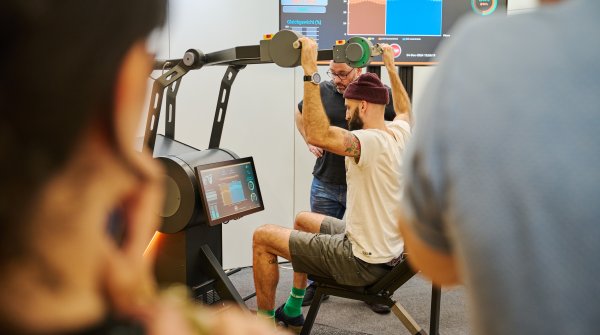The Oscar-winning documentary "Free Solo" accompanies the exceptional climber Alex Honnold on one of his greatest challenges: He climbs the mighty granite rock El Capitan in Yosemite National Park without any protection or aids - and thus dares a deadly risk.
We get an insight into all the mental and psychological efforts that the then 33-year-old Honnold has to master in free solo climbing. The US American describes his climbing passion as a mental game: "It's about understanding and controlling your fears so they don't rule you! You have to learn to have confidence in your abilities and focus on what you can control."
Honnold speaks of a skill that Italian soccer star Roberto Baggio apparently did not have access to in the 1994 World Cup final against Brazil. Baggio shot his decisive penalty grotesquely wide of the goal, his face frozen in blankness and frustration. This moment of failure manifested itself as an iconic image in the collective sports memory ("the man who died standing"). It is a symbol of the moment when the pressure is greatest and an athlete has the chance to lead his team to victory - but the nerves do not play along.
The history of sports knows many athletes who failed in decisive moments - or who surpassed themselves in exactly those moments. Mental strength in sports determines who can withstand the pressure and who breaks under it. But how can athletes prepare themselves mentally for great challenges so that they don't freeze before the moment?
One way is to talk to yourself, says sports psychology consultant Thorsten Loch. "You can use it to support your actions, so a threat becomes a challenge." Mental strength in sports means using such techniques to stay focused under pressure. Many athletes* could describe what it feels like when things don't go their way at certain moments – they often experience a kind of helplessness in competition. But to be really successful, they also need to focus on mental preparation for athletes and understand exactly what their ideal performance state should feel like to get into the flow and stay there.
That's why the first thing to do is to work out how to define this ideal state that brings you to top performance. Only then will one be able to call it up when needed. "This can succeed, for example, via a visualization, a very specific image"explains Thorsten Loch. When it comes down to it, it is then a matter of calling up precisely this image in the mind.
Loch worked with a soccer goalkeeper who suffered from the pressure that was on him. "He told me that he wanted to be like a wall. We then worked with that image. His strengths include reflexes, loud coaching, leadership qualities and many more. We visualized all these positive qualities into bricks, which in the image we work with, form that wall that he wants to embody." The terms also landed on the inside surface of his goalkeeper gloves. A look at this helped him to consolidate his mental strength in sports during the games.

The internationally active mental coach Dr. Rita Regös has already prepared many athletes and teams for the Olympic Games and accompanied them there. She knows: "If too much attention is paid to nervousness, it can tip over." And when performance is at risk, self-efficacy must come into play. In other words, she prepares the athletes in advance for various difficult situations that can arise in the competition, so that they can then react optimally on their own. Mental strength in sports means staying in control at crucial moments – and that's exactly what Regös trains her athletes to do. Mental strength on demand, as with Alex Honnold.
- Visualize your success: Use the power of imagination by visualizing yourself achieving your athletic goals. Visualize success, feel the positive energy and imagine overcoming obstacles. This mental exercise can help you boost your confidence.
- Set realistic goals: Set clear, achievable goals for your training and competitions. Breaking your goals into small milestones will help you see progress and stay motivated. Achieving goals helps increase your mental toughness.
- Develop a positive attitude: cultivate a positive and optimistic attitude toward sports. Focus on your strengths, be patient with yourself and learn from setbacks. By viewing challenges as opportunities, you will become more resilient and better able to handle stress.
- Practice mental techniques: Incorporate mental techniques such as mindfulness, breathing exercises or meditation into your training. These techniques will help you improve focus, reduce stress and increase your concentration. They can also help reduce nervousness before competitions.
- Build a strong environment: Surround yourself with people who support and motivate you. Look for training partners, coaches or mentors who can help you develop as an athlete. Community and support can help you stay mentally strong even in difficult times.
Regös remembers a female sports shooter who allowed herself to be distracted by the sound of a rolling suitcase in the background during a competition situation. She got angry, both at the person who caused it and at herself, because she allowed herself to be distracted. Her shots were accordingly unfocused.
"This situation ended up in a black box of our own experience. Then we look for other contingencies that other athletes* have experienced." Goal: For every situation, it should be possible to find the right mental tool in the bag of tricks. After all, mental strength in sports means being able to focus on the essentials despite unforseen disruptions.
The importance of mental strength in sports has increased significantly in recent years, says sports psychology consultant Linda Rapp: "Because some athletes* share the successes of their psychological coaching on their social media channels, others are also becoming more aware of the part that the mind and, in particular, mental strength play in physical performance."
However, the topic of mental strength or psychological and mental coaching - unlike free climbing - is far from penetrating all sports, he said. "There's still a lot of room to go."
- Awards
- Mountain sports
- Bike
- Fitness
- Health
- ISPO Munich
- Running
- Brands
- Sustainability
- Olympia
- OutDoor
- Promotion
- Sports Business
- Textrends
- Triathlon
- Water sports
- Winter sports
- eSports
- SportsTech
- OutDoor by ISPO
- Heroes
- Transformation
- Sport Fashion
- Urban Culture
- Challenges of a CEO
- Trade fairs
- Sports
- Find the Balance
- Product reviews
- Newsletter Exclusive Area
- Magazine








